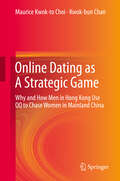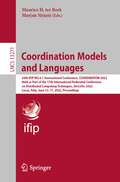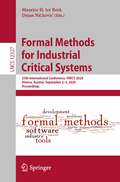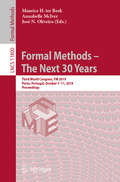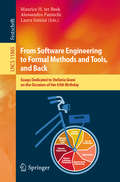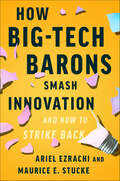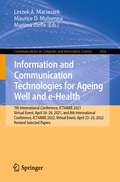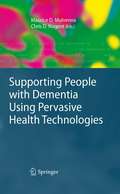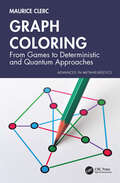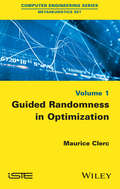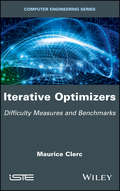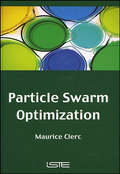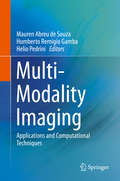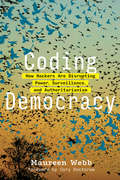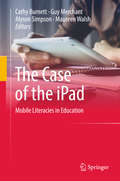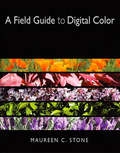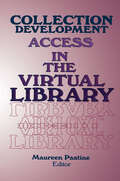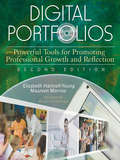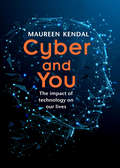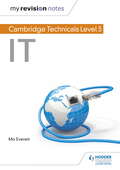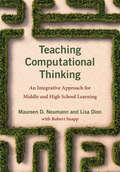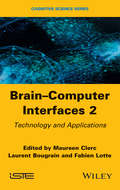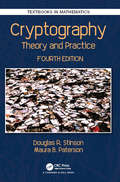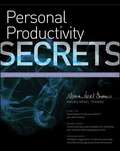- Table View
- List View
Online Dating as A Strategic Game
by Maurice Kwok-to Choi Kwok-Bun ChanBased on a study using online ethnography as the major research method, this book explains why and how men in Hong Kong use QQ--an online instant messenger--to "chase" women in mainland China, especially in the neighboring city of Shenzhen. Chasing women through QQ is a reciprocal exchange process during which the resources to be exchanged in the interaction are not negotiated. Rather, the men provide resources to the women, hoping for rewards in return that are not guaranteed. This characteristic of the exchange makes men who chase women through QQ very strategic in their action. They try to maximize the rewards and minimize the costs by adopting myriad strategies, such as constructing an attractive online identity by strategic self-presentation. The role of emotions in the exchange process is also examined. Men learn the emotional norms through the online forum, but sometimes it is difficult for them to control their emotions; some men fall in love when they are not supposed to. As it happens, they have failed to calculate the costs and rewards rationally in that they may provide too many resources to the women without getting enough rewards in return. This book provides original insights into the thought processes, motivations, desires, anxieties and risks of Hong Kong men seeking short-term sexual relations with women on the mainland. These insights are highly relevant to our understanding of the quickly evolving use of social media, a phenomenon of worldwide importance and deep implications.
Coordination Models and Languages: 24th IFIP WG 6.1 International Conference, COORDINATION 2022, Held as Part of the 17th International Federated Conference on Distributed Computing Techniques, DisCoTec 2022, Lucca, Italy, June 13-17, 2022, Proceedings (Lecture Notes in Computer Science #13271)
by Marjan Sirjani Maurice H. ter BeekThis book constitutes the refereed proceedings of the 24th IFIP WG 6.1 International Conference on Coordination Models and Language, COORDINATION 2022, held in Lucca, Italy, in June 2022, as part of the 17th International Federated Conference on Distributed Computing Techniques, DisCoTec 2022. The 11 regular papers and one short paper presented in this book were carefully reviewed and selected from 22 submissions. COORDINATION provides a well-established forum for the growing community of researchers interested in coordination models and languages, architectures, verification and implementation techniques necessary to cope with the complexity induced by the demands of today's software development.
Formal Methods for Industrial Critical Systems: 25th International Conference, FMICS 2020, Vienna, Austria, September 2–3, 2020, Proceedings (Lecture Notes in Computer Science #12327)
by Maurice H. ter Beek Dejan NičkovićThis book constitutes the proceedings of the 25th International Workshop on Formal Methods for Industrial Critical Systems, FMICS 2020, which was held during September 2-3, 2020. The conference was planned to take place in Vienna, Austria. Due to the COVID-19 pandemic it changed to a virtual event.The 11 full papers presented in this volume were carefully reviewed and selected from 26 submissions. The papers are organized in topical sections as follows: Quantitative Analysis and Cyber-Physical Systems, Formal Verification of Industrial Systems, Temporal Logic and Model Checking. The book also contains a lengthy report on a Formal Methods Survey conducted on occasion of the 25th edition of the conference.
Formal Methods – The Next 30 Years: Third World Congress, FM 2019, Porto, Portugal, October 7–11, 2019, Proceedings (Lecture Notes in Computer Science #11800)
by Maurice H. ter Beek Annabelle McIver José N. OliveiraThis book constitutes the refereed proceedings of the 23rd Symposium on Formal Methods, FM 2019, held in Porto, Portugal, in the form of the Third World Congress on Formal Methods, in October 2019. The 44 full papers presented together with 3 invited presentations were carefully reviewed and selected from 129 submissions. The papers are organized in topical sections named: Invited Presentations; Verification; Synthesis Techniques; Concurrency; Model Checking Circus; Model Checking; Analysis Techniques; Specification Languages; Reasoning Techniques; Modelling Languages; Learning-Based Techniques and Applications; Refactoring and Reprogramming; I-Day Presentations.
From Software Engineering to Formal Methods and Tools, and Back: Essays Dedicated to Stefania Gnesi on the Occasion of Her 65th Birthday (Lecture Notes in Computer Science #11865)
by Alessandro Fantechi Maurice H. ter Beek Laura SeminiThis volume was published in honor of Stefania Gnesi’s 65th birthday. The Festschrift volume contains 32 papers written by close collaborators and friends of Stefania and was presented to her on October 8, 2019 one-day colloquium held in Porto, Portugal, The Festschrift consists of eight sections, seven of which reflect the main research areas to which Stefania has contributed. Following a survey of Stefania's legacy in research and a homage by her thesis supervisor, these seven sections are ordered according to Stefania's life cycle in research, from software engineering to formal methods and tools, and back: Software Engineering; Formal Methods and Tools; Requirements Engineering; Natural Language Processing; Software Product Lines; Formal Verification; and Applications.
How Big-Tech Barons Smash Innovation—and How to Strike Back
by Ariel Ezrachi Maurice E. StuckeTwo market experts deconstruct the drivers and inhibitors to innovation in the digital economy, explain how large tech companies can stifle disruption, assess the toll of their technologies on our well-being and democracy, and outline policy changes to take power away from big tech and return it to entrepreneurs.Silicon Valley’s genius combined with limited corporate regulation promised a new age of technological innovation in which entrepreneurs would create companies that would in turn fuel unprecedented job growth. Yet disruptive innovation has stagnated even as the five leading tech giants, which account for approximately 25 percent of the S&P 500’s market capitalization, are expanding to unimaginable scale and power. In How Big-Tech Barons Smash Innovation—and How to Strike Back, Ariel Ezrachi and Maurice E. Stucke explain why this is happening and what we can do to reverse it.While many distrust the Big-Tech Barons, the prevailing belief is that innovation is thriving online. It isn’t. Rather than disruptive innovations that create significant value, we are getting technologies that primarily extract value and reduce well-being. Using vivid examples and relying on their work in the field, the authors explain how the leading tech companies design their sprawling ecosystems to extract more profits (while crushing any entrepreneur that poses a threat). As a result, we get less innovation that benefits us and more innovations that surpass the dreams of yesteryears’ autocracies. The Tech Barons’ technologies, which seek to decode our emotions and thoughts to better manipulate our behavior, are undermining political stability and democracy while fueling tribalism and hate.But it’s not hopeless. The authors reveal that sustained innovation scales with cities not companies, and that we, as a society, should profoundly alter our investment strategy and priorities to certain entrepreneurs (“Tech Pirates”) and cities’ infrastructure.
Information and Communication Technologies for Ageing Well and e-Health: 7th International Conference, ICT4AWE 2021, Virtual Event, April 24–26, 2021, and 8th International Conference, ICT4AWE 2022, Virtual Event, April 23–25, 2022, Revised Selected Papers (Communications in Computer and Information Science #1856)
by Leszek A. Maciaszek Martina Ziefle Maurice D. MulvennaThis book constitutes the refereed post-conference proceedings of the 7th and the 8th International Conference on Big Data Technologies and Applications, ICT4AWE 2021 and ICT4AWE 2022, held in April 24–26, 2021 and April 23–25, 2022. Due to COVID-19 pandemic both conferences were held virtually.The 21 full papers of ICT4AWE 2021 and ICT4AWE 2022 were selected from 80 submissions and present all big data technologies, such as Aging Well - Social and Human Sciences Perspective; Telemedicine and Independent Living; Digital Health and e-health.
Supporting People with Dementia Using Pervasive Health Technologies
by Chris D. Nugent Maurice D MulvennaInformation and communication technologies can provide new paradigms in healthcare provision. In particular, new Pervasive Healthcare technologies can revolutionise the dynamics of healthcare, enabling people to remain at home for longer, at lower costs to health and welfare organisations. This book reveals how pervasive healthcare technologies can be designed in conjunction with users and carers, as well as exploring the application of novel methods and technologies.
Graph Coloring: From Games to Deterministic and Quantum Approaches (Advances in Metaheuristics)
by Maurice ClercThis book explores the problem of minimal valid graph coloring, first in the form of games and then of resolution algorithms. Emphasis is placed on deterministic, guaranteed and non-guaranteed methods. Stochastic methods are then just mentioned because they are already widely described in previous publications.The study then details a general quantum algorithm of polynomial complexity. A final chapter provides elements of reflection on diplomatic algorithms that, for the problem of coloring under resource constraints, seek a compromise minimizing frustrations. The appendix includes some mathematical additions and the source codes of the main algorithms presented, in particular the one of the quantum method.
Guided Randomness in Optimization, Volume 1
by Maurice ClercThe performance of an algorithm used depends on the GNA. This book focuses on the comparison of optimizers, it defines a stress-outcome approach which can be derived all the classic criteria (median, average, etc. ) and other more sophisticated. Source-codes used for the examples are also presented, this allows a reflection on the "superfluous chance," succinctly explaining why and how the stochastic aspect of optimization could be avoided in some cases.
Iterative Optimizers: Difficulty Measures and Benchmarks
by Maurice ClercAlmost every month, a new optimization algorithm is proposed, often accompanied by the claim that it is superior to all those that came before it. However, this claim is generally based on the algorithm’s performance on a specific set of test cases, which are not necessarily representative of the types of problems the algorithm will face in real life. This book presents the theoretical analysis and practical methods (along with source codes) necessary to estimate the difficulty of problems in a test set, as well as to build bespoke test sets consisting of problems with varied difficulties. The book formally establishes a typology of optimization problems, from which a reliable test set can be deduced. At the same time, it highlights how classic test sets are skewed in favor of different classes of problems, and how, as a result, optimizers that have performed well on test problems may perform poorly in real life scenarios.
Particle Swarm Optimization (Wiley-iste Ser.)
by Maurice ClercThis is the first book devoted entirely to Particle Swarm Optimization (PSO), which is a non-specific algorithm, similar to evolutionary algorithms, such as taboo search and ant colonies. Since its original development in 1995, PSO has mainly been applied to continuous-discrete heterogeneous strongly non-linear numerical optimization and it is thus used almost everywhere in the world. Its convergence rate also makes it a preferred tool in dynamic optimization.
Multi-Modality Imaging: Applications and Computational Techniques
by Mauren Abreu de Souza Humberto Remigio Gamba Helio PedriniThis book presents different approaches on multi-modality imaging with a focus on biomedical applications. Medical imaging can be divided into two categories: functional (related to physiological body measurements) and anatomical (structural) imaging modalities.In particular, this book covers imaging combinations coming from the usual popular modalities (such as the anatomical modalities, e.g. X-ray, CT and MRI), and it also includes some promising and new imaging modalities that are still being developed and improved (such as infrared thermography (IRT) and photoplethysmography imaging (PPGI)), implying potential approaches for innovative biomedical applications.Moreover, this book includes a variety of tools on computer vision, imaging processing, and computer graphics, which led to the generation and visualization of 3D models, making the most recent advances in this area possible. This is an ideal book for students and biomedical engineering researchers covering the biomedical imaging field.
Coding Democracy: How Hackers Are Disrupting Power, Surveillance, and Authoritarianism (The\mit Press Ser.)
by Maureen WebbHackers as vital disruptors, inspiring a new wave of activism in which ordinary citizens take back democracy.Hackers have a bad reputation, as shady deployers of bots and destroyers of infrastructure. In Coding Democracy, Maureen Webb offers another view. Hackers, she argues, can be vital disruptors. Hacking is becoming a practice, an ethos, and a metaphor for a new wave of activism in which ordinary citizens are inventing new forms of distributed, decentralized democracy for a digital era. Confronted with concentrations of power, mass surveillance, and authoritarianism enabled by new technology, the hacking movement is trying to “build out” democracy into cyberspace.Webb travels to Berlin, where she visits the Chaos Communication Camp, a flagship event in the hacker world; to Silicon Valley, where she reports on the Apple-FBI case, the significance of Russian troll farms, and the hacking of tractor software by desperate farmers; to Barcelona, to meet the hacker group XNet, which has helped bring nearly 100 prominent Spanish bankers and politicians to justice for their role in the 2008 financial crisis; and to Harvard and MIT, to investigate the institutionalization of hacking. Webb describes an amazing array of hacker experiments that could dramatically change the current political economy. These ambitious hacks aim to displace such tech monoliths as Facebook and Amazon; enable worker cooperatives to kill platforms like Uber; give people control over their data; automate trust; and provide citizens a real say in governance, along with capacity to reach consensus. Coding Democracy is not just another optimistic declaration of technological utopianism; instead, it provides the tools for an urgently needed upgrade of democracy in the digital era.
The Case of the iPad
by Cathy Burnett Guy Merchant Alyson Simpson Maureen WalshThis book brings together an international group of literacy studies scholars who have investigated mobile literacies in a variety of educational settings. Approaching mobility from diverse theoretical perspectives, the book makes a significant contribution to how mobile literacies, and tablets in particular, are being conceptualised in literacy research. The book focuses on tablets, and particularly the iPad, as a prime example of mobile literacies, setting this within the broader context of literacy and mobility. The book provides inspiration and direction for future research in mobile literacies, based upon 16 chapters that investigate the relationship between tablets and literacy in diverse ways. Together they address the complex and multiple forces associated with the distribution of the technologies themselves and the texts they mediate, and consider how apps, adults and children work together as iPads enter the mesh of practices and material arrangements that constitute the institutional setting.
A Field Guide to Digital Color
by Maureen StoneMaureen Stone's field guide to digital color presents a survey of digital color with special emphasis on those fields important for computer graphics. The book provides the foundation for understanding color and its applications, discusses color media and color management and the use of color in computer graphics, including color design and selecti
Collection Development: Access in the Virtual Library
by Maureen PastineA guide to balancing traditional collection issues with electronic access and document delivery demands, Collection Development: Access in the Virtual Library helps librarians find solutions and approaches for dealing with changes occurring in interlibrary loan, regional consortia, commercial vendor relations, and ownership versus access. Its sophisticated analyses offer you clarity of vision, the wisdom of experience, and solid advice as you are transported into the 'virtual library environment' with its variety of expectations, service complexities, and information technologies.Interested in reducing local collecting costs while expanding the universe of information and knowledge available to your primary clientele? Collection Development will show you just how many options are out there for enhancing your virtual environment, as it explores: teaching your users advancing bibliographical retrieval and assessment methodologies the delivery of library resources electronically for distributed learning/distance education conducting CD-Rom collection development comparisons planning space for a more technologically oriented research environment enriching your on-line catalog with contents pages and new indexing capabilities the impact of change and shifting paradigms on public services staffing the development of good electronic presentation design Still not convinced that this is the book you need to improve access in your library? Think again! Collection Development will help you with library control and ordering articles via commercial document delivery; it will help you develop coherent and intuitive ways of organizing and presenting available electronic resources; it will help you work with administrators and funding agents to attain a balance between traditional library resources and emerging information technologies, and much, much more!
Digital Portfolios: Powerful Tools for Promoting Professional Growth and Reflection (2nd Edition)
by Elizabeth Hartnell-Young Maureen P. MorrissProviding ten steps to develop portfolios that demonstrate professional growth, this complete resource presents tips and strategies for using digital technology and guidelines for creating portfolios.
Cyber & You: Book 2 (Smart Skills)
by Maureen KendalCyber & You is a fascinating look at our lives today and what our lives will be like in the future. The focus is on the development of human interaction, how humans are impacted by technology, and the affect cyberspace interactions have on the minds of individuals and on society as a whole.The book addresses areas such as: access and modes of communication, Virtual Community, Virtual self, Economic Divide, and Block Chains. It also covers:Morals and Ethics: Behavioural development, personal characteristics, and redefining relationshipsThe Future: Consumer landscape, Technology and the workforce, Cyber learning and education and Lifestyle disruptions.
My Revision Notes: Cambridge Technicals Level 3 IT
by Maureen EverettEnhance your students' practical skills and develop their key content knowledge with this proven formula for effective, structured revision.Target success in OCR's Cambridge Technical Level 3 Information Technology with this revision guide that brings together exam-style questions, revision tasks and practical tips to help students to review, strengthen and test their knowledge.With My Revision Notes, every student can:- Enjoy an interactive approach to revision, with clear topic summaries that consolidate knowledge and related activities that put the content into context.- Plan and manage a successful revision programme using the topic-by-topic planner.- Build, practise and enhance exam skills by progressing through revision tasks and Test Yourself activities.- Improve exam technique with helpful hints, tips and 'Now Test Yourself' questions on how to approach the exams. Please note: answers are not provided for the exam-style questions and 'Test Yourself' activities
My Revision Notes: Cambridge Technicals Level 3 It Epub
by Maureen EverettEnhance your students' practical skills and develop their key content knowledge with this proven formula for effective, structured revision.Target success in OCR's Cambridge Technical Level 3 Information Technology with this revision guide that brings together exam-style questions, revision tasks and practical tips to help students to review, strengthen and test their knowledge.With My Revision Notes, every student can:- Enjoy an interactive approach to revision, with clear topic summaries that consolidate knowledge and related activities that put the content into context.- Plan and manage a successful revision programme using the topic-by-topic planner.- Build, practise and enhance exam skills by progressing through revision tasks and Test Yourself activities.- Improve exam technique through exam-style questions and sample answers with commentary from an expert author and teacher.- Get exam ready with answers to the activities available online
Teaching Computational Thinking: An Integrative Approach for Middle and High School Learning
by Lisa Dion Maureen D. NeumannA guide for educators to incorporate computational thinking—a set of cognitive skills applied to problem solving—into a broad range of subjects.Computational thinking—a set of mental and cognitive tools applied to problem solving—is a fundamental skill that all of us (and not just computer scientists) draw on. Educators have found that computational thinking enhances learning across a range of subjects and reinforces students&’ abilities in reading, writing, and arithmetic. This book offers a guide for incorporating computational thinking into middle school and high school classrooms, presenting a series of activities, projects, and tasks that employ a range of pedagogical practices and cross a variety of content areas. As students problem solve, communicate, persevere, work as a team, and learn from mistakes, they develop a concrete understanding of the abstract principles used in computer science to create code and other digital artifacts. The book guides students and teachers to integrate computer programming with visual art and geometry, generating abstract expressionist–style images; construct topological graphs that represent the relationships between characters in such literary works as Harry Potter and the Sorcerer&’s Stone and Romeo and Juliet; apply Newtonian physics to the creation of computer games; and locate, analyze, and present empirical data relevant to social and political issues. Finally, the book lists a variety of classroom resources, including the programming languages Scratch (free to all) and Codesters (free to teachers). An accompanying website contains the executable programs used in the book&’s activities.
Brain-Computer Interfaces 2: Technology and Applications
by Fabien Lotte Laurent Bougrain Maureen ClercIn this book, the reader will become acquainted with the fundamental notions which need to be brought together to build and run Brain Computer Interfaces. The fields of expertise covered include neurophysiology, signal processing, machine learning, human learning, clinical practice and multimedia. Intended for a general audience, this book provides hands-on illustrations, and the inner works can be understood in detail thanks to freely available software designed with OpenViBE.
Cryptography: Theory and Practice (Fourth Edition) (Textbooks in Mathematics #2012)
by Douglas Robert Stinson Maura Paterson<p>Through three editions, Cryptography: Theory and Practice, has been embraced by instructors and students alike. It offers a comprehensive primer for the subject’s fundamentals while presenting the most current advances in cryptography. <p>The authors offer comprehensive, in-depth treatment of the methods and protocols that are vital to safeguarding the seemingly infinite and increasing amount of information circulating around the world.</p>
Personal Productivity Secrets
by Maura Nevel ThomasLearn tried-and-tested methods for optimal personal productivity!Ever find yourself more than a bit overwhelmed by the constant influx of e-mail and reminders as well as the ever-present calendars, to-do lists, miscellaneous paper, and sticky notes? Add to that, myriad devices that were originally intended to make us more efficient, but in reality, only end up forcing us to juggle even more. Our brains aren't wired for all this, but we can learn to be productive. Personal Productivity Secrets gives you everything you need to know to be organized, in control, and to get things done:Understand how your brain absorbs, organizes, and filters the daily deluge of information, and learn to trick your brain into being more productive Appreciate the difference between "Time Management" and "Attention Management" and create workflow processes that help you defend your attention Create a plan for navigating endless technology options, and implement tools that will keep you productive, focused and in control Personal Productivity Secrets reveals updated and vital information for achieving your significant results, and being as productive as you can be in a fast-paced, technology-driven society.
